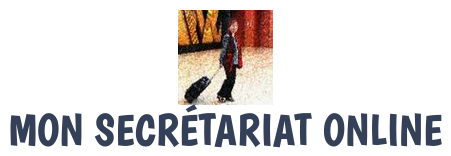Quand il n’y a personne à la maison, une porte fermée à clé est plus dissuasive qu’une porte ouverte…
Mettez-vous une minute à la place d’un hacker… Quelle serait selon vous une bonne raison d’entrer chez un inconnu sans demander la permission ?
- L’appât du gain ?
- L’appât de la renommée ?
- L’occasion était trop belle pour ne pas en profiter ?
Se mettre en situation aide à établir sa stratégie de protection en conséquence.
En effet si nous ne pouvons pas vraiment agir sur les point 1 et 2. Nous pouvons installer des obstacles afin de les dissuader de mettre le point 3 en action et rendre leur chemin d’accès moins facile.
Que faire pour protéger ses données et son matériel informatique ?
Tout d’abord, sachez qu’aucune solution n’est efficace à 100% et se suffit à elle-même. Il y aura toujours des petits malins qui arriveront à passer entre les mailles du filet. Mais au moins elles ralentiront et en dissuaderont une majorité.
Voici celles que je préconise :
Installer et activer un pare-feu
Le pare-feu va gérer les entrées et les sorties de votre ordinateur si vous êtes seul, de votre réseau si vous êtes à plusieurs. L’idéal est de limiter les autorisations d’accès à votre système à une petite sélection de sites ou de programmes.
Installer et paramétrer un antivirus
Il veillera sur ce qui se passe à l’intérieur de votre ordinateur. Il va patrouiller, décontaminer et vous signaler les agissements suspects.
Utiliser des mots de passe adaptés
Idéalement ayant un minimum de 8 caractères, chiffres et lettres, majuscules et minuscules, avec des symboles et surtout ne formant pas un mot du dictionnaire.
Vérifier les paramètres de sécurités Windows
Utiliser les rôles administrateur et utilisateur. Paramétrer le contrôle des comptes utilisateurs. Ajouter des mots de passe.
Surveiller les mises à jour
N’accepter que les mises à jour de sites de confiance. Vérifier les paramètres des mises à jour de vos logiciels. Être attentif et sélectif.
Paramétrer le navigateur internet
Installer des modules complémentaires favorisant une protection accrue lors de navigation sur internet. Supprimer systématiquement traces, cookies et historique.
Voilà pour un début. En mettant déjà ce qui précède en place, vous aurez une bonne base pour assurer la sécurité de vos données et maintenir votre ordinateur en fonction.
Dans un prochain volet, je vous en dirais plus sur les pare-feu, les antivirus, les mots de passes et vous montrerai les paramétrages à surveiller.
(Photos : CC0 @ pexels.com)

